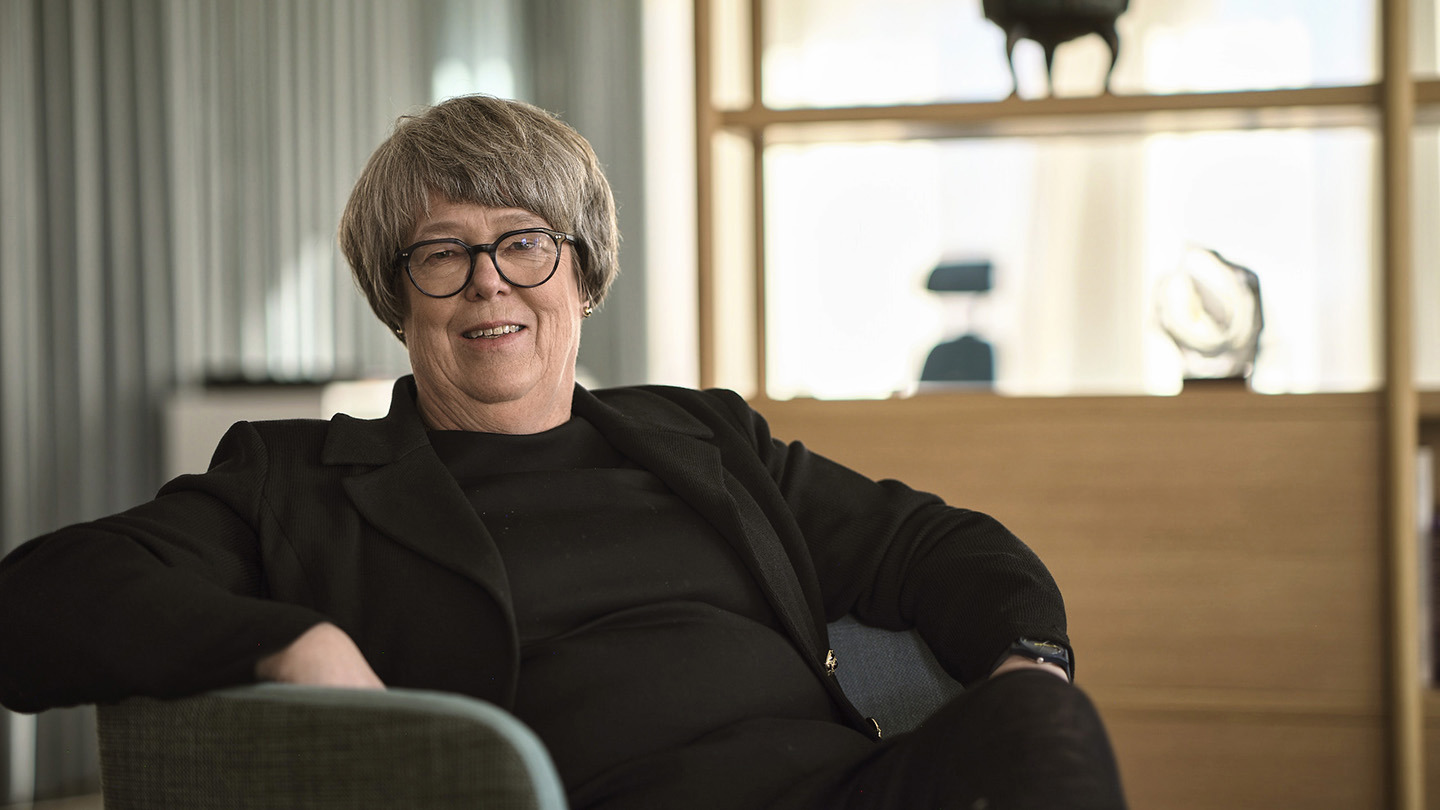This is how we make the change to a sustainable textile industry
2023-04-12

“It was completely unexpected to be named an honorary doctor. It is a fine honour to be recognised for what you have achieved. Now I have at look at what it means. I feel an obligation,” she said.
Knowledge within textile technology must be strengthened
Anne Ludvigson comes from a family in which several generations have worked in the long-standing family business Ludvig Svensson in Kinna. Textiles, not only in that area but in Sweden, are close to her heart. But when she looks ahead, she sees the need to strengthen skills within textile technology, the ability to develop new textile materials and production processes. There is no other way, she says.
With her perspective from the business world, she sees the importance of collaboration with academia in order to train more textile engineers and to demand new textile materials for research. And it is based on this great and significant commitment that the University of Borås is now appointing her Honorary Doctor of Philosophy in Textiles and Fashion.
Anne Ludvigson has made significant efforts to modernise and invest in research infrastructure, for the Swedish School of Textiles in general and the Textile Material Technology research group in particular. She has supported cutting-edge research and innovation as well as education at all levels. Through the company Ludvig Svensson AB, she has for a long time been an important and valued partner to the University of Borås. She has participated in several projects linked to the textile industry's need for change, such as ArcInTexETN, and not least in an ongoing project that aims at flexible and lifelong learning in textile technology. In the project, programme students, alumni, and professionals are integrated into the same courses. Through her company, Anne Ludvigson has long supported the development of the Smart Textiles area.
Anne Ludvigson's commitment to the textile industry has led her to the position of Board Chair of TEKO, the Swedish trade and employers’ association for companies working in the textile and fashion industry, a position she has held since 2013.
She has always had textiles in her blood, but she is not a textile engineer herself, but rather an accountant who was educated mainly in the USA, Canada, and England. She spoke about her career journey that alternated between working for the family business and in completely different industries.
“For a period in the 80s, I worked in finance at a bank in Gothenburg. But then Ludvig Svensson was going to establish in the USA and then I helped with that, and became CEO there for four years, from 1996 to 2002. And for a period, I worked as assortment and marketing manager at Papyrus/Stora Enso,” she said.
But then the road led back to the family business in 2006 when she took on the role of CEO at Ludvig Svensson until 2015. The family business then made a structural change and today Anne Ludvigson is CEO of the owner company Ludvigson Invest.
Important to show the profit of collaboration
We return to the topic of the future and the role of an honorary doctor.
“I want to work towards strong collaboration between the textile industry and the university and give input regarding both educational issues, where I see the industry as setting demands on what, for example, a textile engineer needs to know, and the development of courses for further education. The textile industry is fragmented in Sweden and a number of companies are conducting research projects, but we need to develop more contact points where the parties can see the benefit of working together.”
We have lost respect for knowledge and competence.
Anne Ludvigson will hold an open lecture on climate-friendly textiles in connection with the Academic Ceremony at the University of Borås.
“I will talk about the challenges when it comes to skills development, that Sweden must push to develop products and services. And to that end, it is necessary that we have educational programmes that provide a good foundation.”
“Today, young people want to read about sustainability, but what we need are those who can work on developing better materials. That brings us to materials and technology. A few generations ago, people, especially women in the home, knew what good quality textiles meant. Today, people barely look at what is written on the labels on the textiles. We can't go on like this; we have to learn what quality means again. We have to move away from the mentality that everything is disposable and that you can just buy new things. We have lost respect for knowledge and competence. Otherwise, we cannot cope with the change we are facing,” she said.
Open lecture: Textiles, climate, and skills
Welcome to the lecture by Anne Ludvigson, Honorary Doctor of Philosophy in Textiles and Fashion and Chair of the Board of TEKO, the Swedish trade and employers’ association for companies working in the textile and fashion industry.
Date: 2025-05-05
Practical information about the lecture

